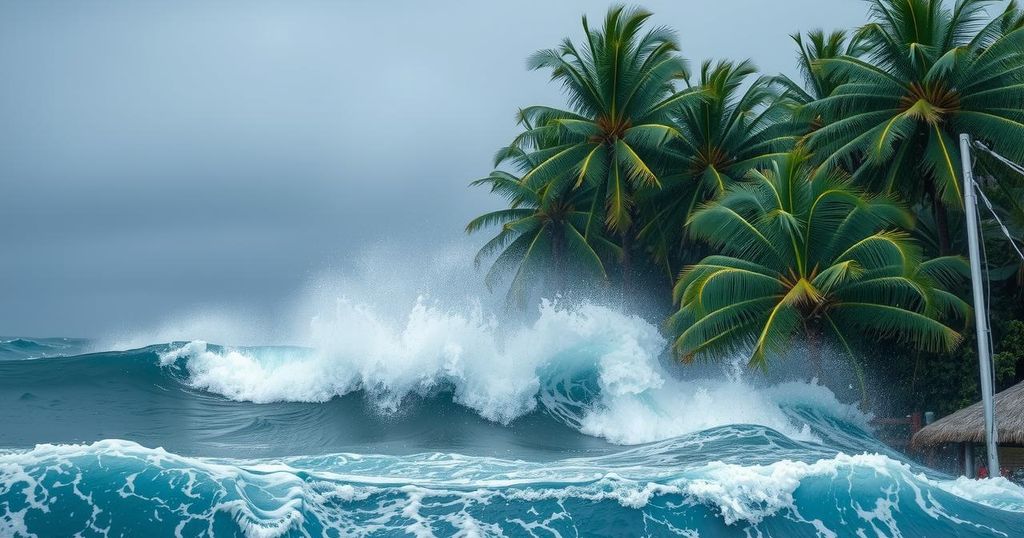Tropical Cyclone Chido has caused extensive damage in Mayotte, with winds surpassing 220 kilometers per hour. Authorities report significant structural damage and power outages. Neighboring regions are under threat as the cyclone progresses toward Mozambique, raising concerns of humanitarian crises due to repeated seasonal storms intensified by climate change.
On Saturday, Tropical Cyclone Chido wreaked havoc in Mayotte, a French territory in the Indian Ocean. The cyclone, categorized as the most severe to strike the region since 1934, produced winds exceeding 220 kilometers per hour, resulting in significant structural damage, particularly to residences. While there have been no immediate reports of casualties, authorities are actively engaged in rescue operations. Mayotte remains under a red alert as residents are urged to shelter securely, with only emergency services permitted to operate outdoors.
French Interior Minister Bruno Retailleau acknowledged the extensive damage across Mayotte, with reports indicating thousands of homes left without power and numerous uprooted trees and destroyed structures. The response team, which includes 110 rescuers from France and Reunion, is actively aiding affected areas, with an additional 140 personnel set to arrive shortly. Nearby, the Comoros islands are also enduring the storm’s impact, raising concerns for a group of missing fishermen.
Forecasters anticipate Chido to proceed toward Mozambique, potentially affecting 2.5 million people in the northern provinces. Neighboring nations, including Malawi and Zimbabwe, are preparing for adverse conditions, including flooding and potential evacuations, as the cyclone season poses heightened risks of natural disasters and health crises due to waterborne diseases. Cyclone season extends from December to March, with previous storms indicating a trend exacerbated by climate change, particularly impacting economically vulnerable southern African nations.
Tropical cyclones are severe weather phenomena characterized by strong winds and heavy rainfall, particularly prevalent in the Indian Ocean. The cyclone season in the southeastern Indian Ocean typically spans from December to March, with climatological studies revealing an alarming increase in the frequency and intensity of such storms, attributing these changes to climate change. Countries in southern Africa, including Mozambique, Malawi, and Zimbabwe, face significant vulnerabilities due to their limited resources to adapt to and recover from these climatic events. Historical incidents, like Cyclones Idai and Freddy, underscore the catastrophic humanitarian crises that can emerge from these natural disasters, prompting increased scrutiny and efforts to mitigate the impacts of future cyclones.
In summary, Tropical Cyclone Chido has inflicted severe damage on Mayotte and poses a significant threat to several countries in eastern Africa. The cyclone has initiated swift responses from local and national authorities to facilitate rescue operations and safeguard residents. With its trajectory set towards Mozambique and potential ramifications for surrounding nations, the need for robust disaster management strategies is imperative, particularly as climate change appears to intensify these extreme weather events.
Original Source: www.voanews.com






